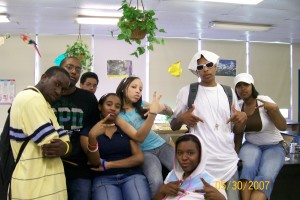
Photo courtesy of StockVault
As most of us know either from our own kids or interaction with other’s kids, teenagers can be moody, confusing and seem to lack empathy. How can we cultivate sensitivity in our teens, especially teen boys?
New research published in Developmental Psychology, shows that biology, not parenting, is to blame for insensitive and selfish behavior by teenagers.
The Wall Street Journal reports that cognitive empathy, the mental ability to take others’ perspective, begins rising steadily in girls at age 13. However, boys don’t begin to show gains in perspective-taking until age 15, which helps in problem-solving and avoiding conflict.
What’s more interesting is that adolescent males actually show a temporary decline, between ages 13 and 16, in a related skill—affective empathy, or the ability to recognize and respond to others’ feelings. Fortunately, the boys’ sensitivity recovers in the late teens. Girls’ affective empathy remains relatively high and stable through adolescence.
This study co-authored by Jolien van der Graaff, a doctoral candidate in the Research Centre Adolescent Development at Utrecht University in the Netherland, is an expansion on researchers’ current understanding of cognitive growth during adolescence.
According to a 2012 research review co-authored by Ronald Dahl, a professor of public health at the University of California at Berkeley, researchers used to believe that both forms of empathy were fully formed during childhood.
It is now clear that “the brain regions that support social cognition, which helps us understand and interact with others successfully, continue to change dramatically“ in the teens, says Jennifer Pfeifer, an assistant professor of psychology at the University of Oregon in Eugene. Preliminary research in her lab also suggests cognitive empathy rises in teens. The discoveries serve as a new lens for exploring such teen behaviors as bullying and drug abuse.
Cognitive empathy versus affective empathy, arises in a different part of the brain, the medial prefrontal cortex, verses the limbic region where affective empathy is grounded. Affective empathy begins in infancy imitating how to treat others from what one is exposed to.
So why do boys have less cognitive empathy than girls, one answer is that decline in affective empathy (which predicts an individuals level of cognitive empathy) among young teenage boys may spring, in part, from puberty when testosterone increases, sparking a desire for dominance and power. Boys who were more mature physically showed less empathy than others.
What are your thoughts on cognitive empathy?
